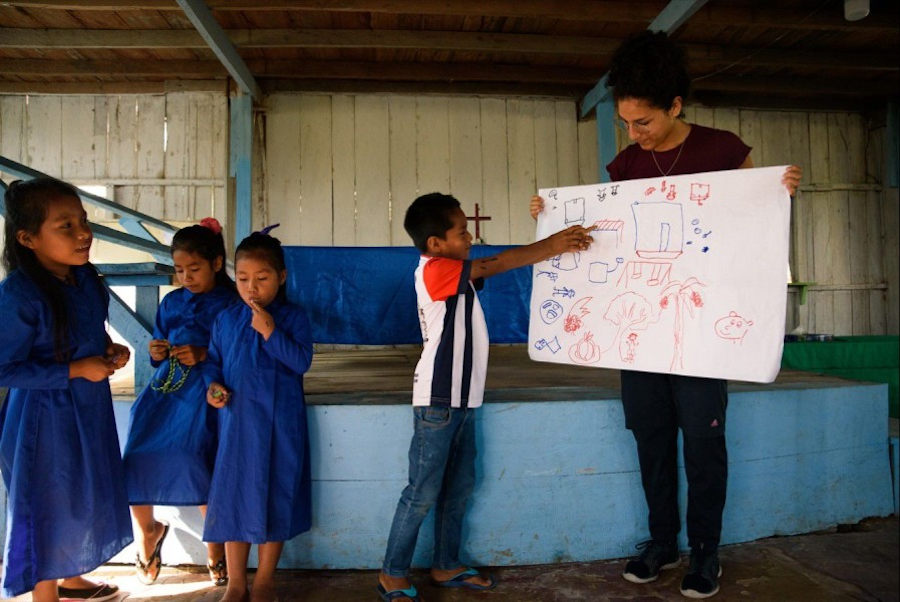Children from the Manití Basin, Iquitos share how they see themselves in the future. Photo: Allison Malpartida
At Solidaridad we support farmers and small-scale, artisanal miners as they make the transition to sustainable production. We work together to address problems related to social and climate injustices that negatively affects girls, women and other traditionally marginalized groups, especially in rural areas.
In Latin America, 58 million women live in the rural areas. However, only 30 percent of them own land and just five percent have access to technical assistance. Additionally, these groups often lack control or access to family and community resources, and bear a greater load of domestic workload. That is why it is essential to understand the social norms and cultural dynamics of each context to promote fairer and more equitable systems.
At Solidaridad, we know that tackling equity and inclusion begins at the family level, where consensus on the benefits of equity and equality is reached through self-reflection by family members, rather than through confrontation. That’s why we include aspects of equity and inclusion in all of our programmes, including Amazonia Connect, where an in-depth understanding of gender dynamics in value chains improves the impact of our work.
Since 2020, the Solidaridad team in Peru has been implementing the Gender Action and Learning System (GALS) methodology. This methodology was developed by the International Fund for Agricultural Development to promote behavioral changes in households and communities, and aims to directly address the root causes of inequity in communities.
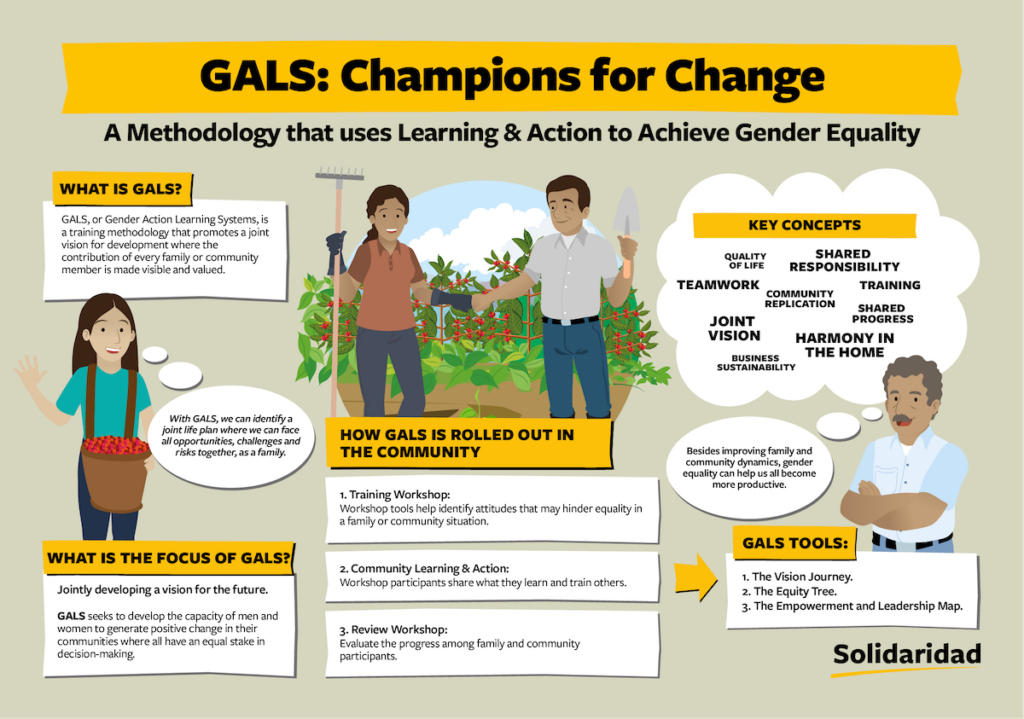
GALS generates opportunities for reflection among the participants on how inequity limits the development of their personal, family and community vision. GALS is a flexible and fun methodology that involves all family members. Its primary rule is “just draw”, which allows anyone – regardless of their educational level – to participate.
GALS utilizes three tools:
- The Vision Journey
- The Equity Tree
- The Empowerment and Leadership Map.
The Vision Journey asks participants to answer the question: where do we want to go as a family? The tool helps families set goals together over the short, medium and long term, so that they can better organize themselves at home and evaluate what they need to do to achieve a “happy future”.
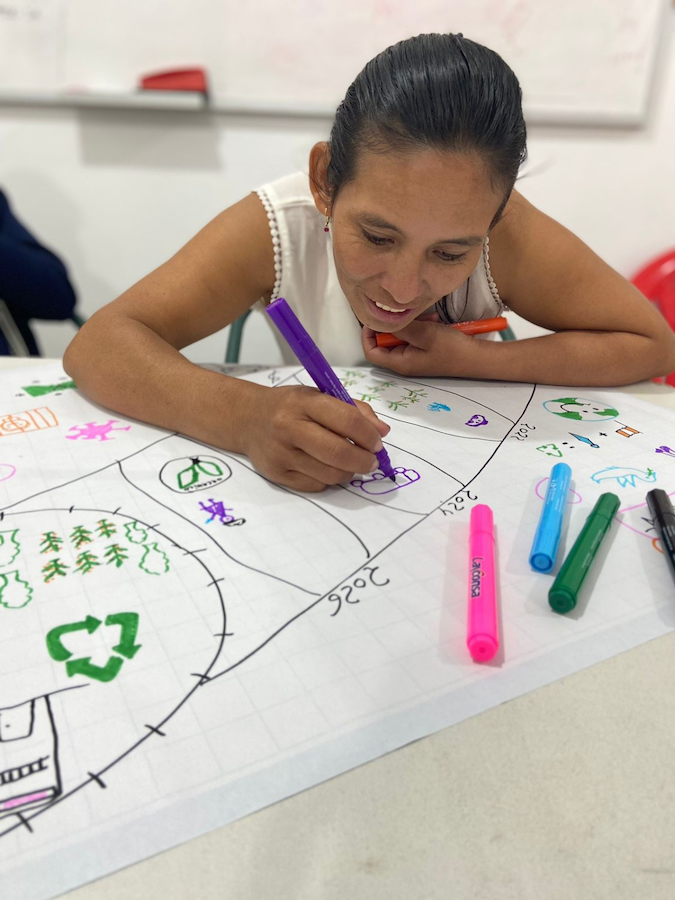
With the Equity Tree, participants examine how they make decisions about the home and the farm. Then they identify the roles and responsibilities of each family at the household and farm level, with the expectation that this will allow them to better balance activities and ensure that everyone is contributing to their overall well-being.
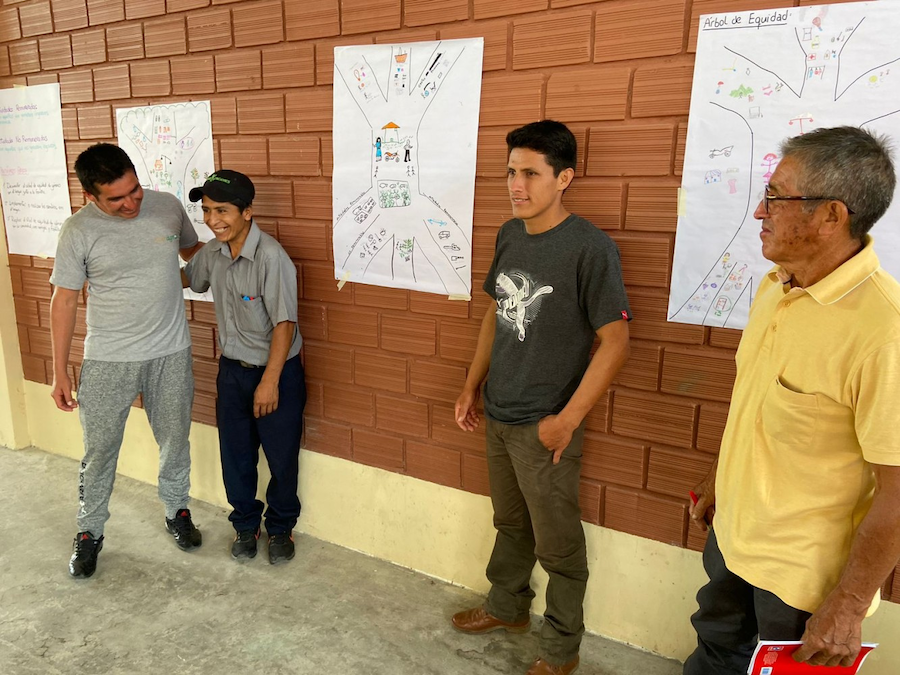
Finally, the Leadership and Empowerment Map asks participants to answer: What impact do we generate in our relationships with our family and the community? This tool helps them analyze their support networks, and identify the power dynamics present between each person. This promotes greater involvement and a higher level of satisfaction in relationships they have with the people in their lives.
The changes we have observed while leading and accompanying the implementation of this methodology have been inspiring. This includes changes in perceptions of equality and equity, changes in behavior among family members, and even a common definition of prosperity for individuals, families and communities.
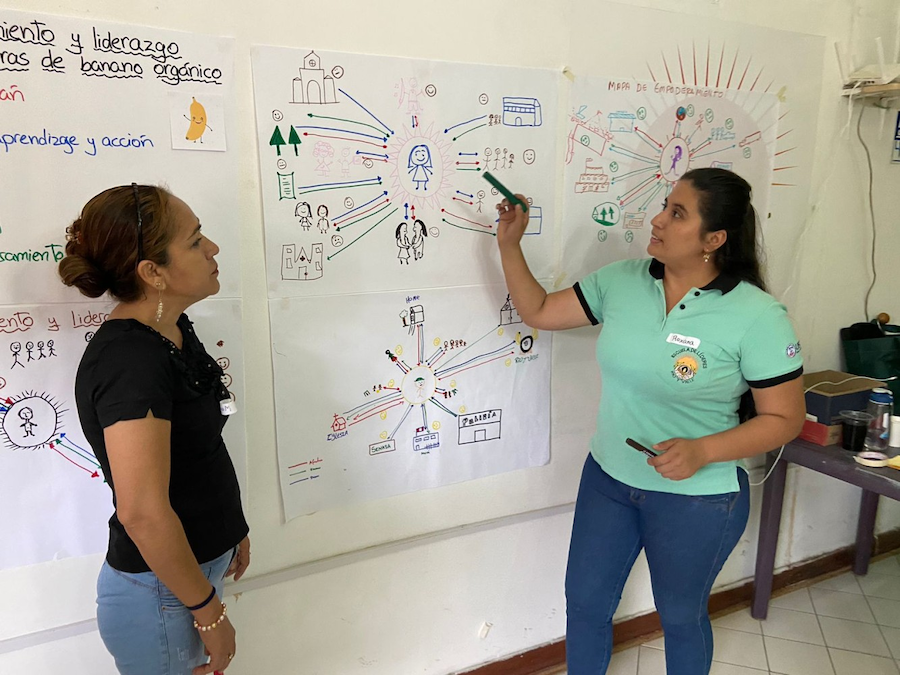
Capitalizing on the lessons learned from implementing GALS with small coffee producers in San Martín and organic bananas in Piura, we will extend this transformative methodology to palm-producing families in Ucayali, Peru within the framework of Amazonia Connect. Amazonia Connect is an initiative of USAID, Solidaridad Network, Earth Innovation Institute, National Wildlife Federation, and the University of Wisconsin-Madison. Amazonia Connect promotes and scales the adoption of low-emission commodity production in palm, coffee and livestock value chains to improve biodiversity conservation and climate resilience in Brazil, Colombia, and Peru.
Unlike other sectors in the Peruvian Amazon, like coffee and cocoa, we know that there is limited information available on gender dynamics in the oil palm value chain. For this reason, we will begin by using diagnostic tools to develop a better understanding of control and power dynamics, and utilize the perceptions of key actors to design an appropriate strategy for deploying GALS.
We cannot claim to work for sustainability and conservation without addressing the situations that perpetuate social and climate injustice. Gender and social inclusion and gender-transformative methodologies provide us with an opportunity to deliberately work towards impactful, sustainable development.
This article was made possible thanks to the generous support of the people of the United States of America through the United States Agency for International Development (USAID). The contents of this article are the responsibility of the authors and do not necessarily reflect the views or positions of the U.S. Agency for International Development or the U.S. Government.

